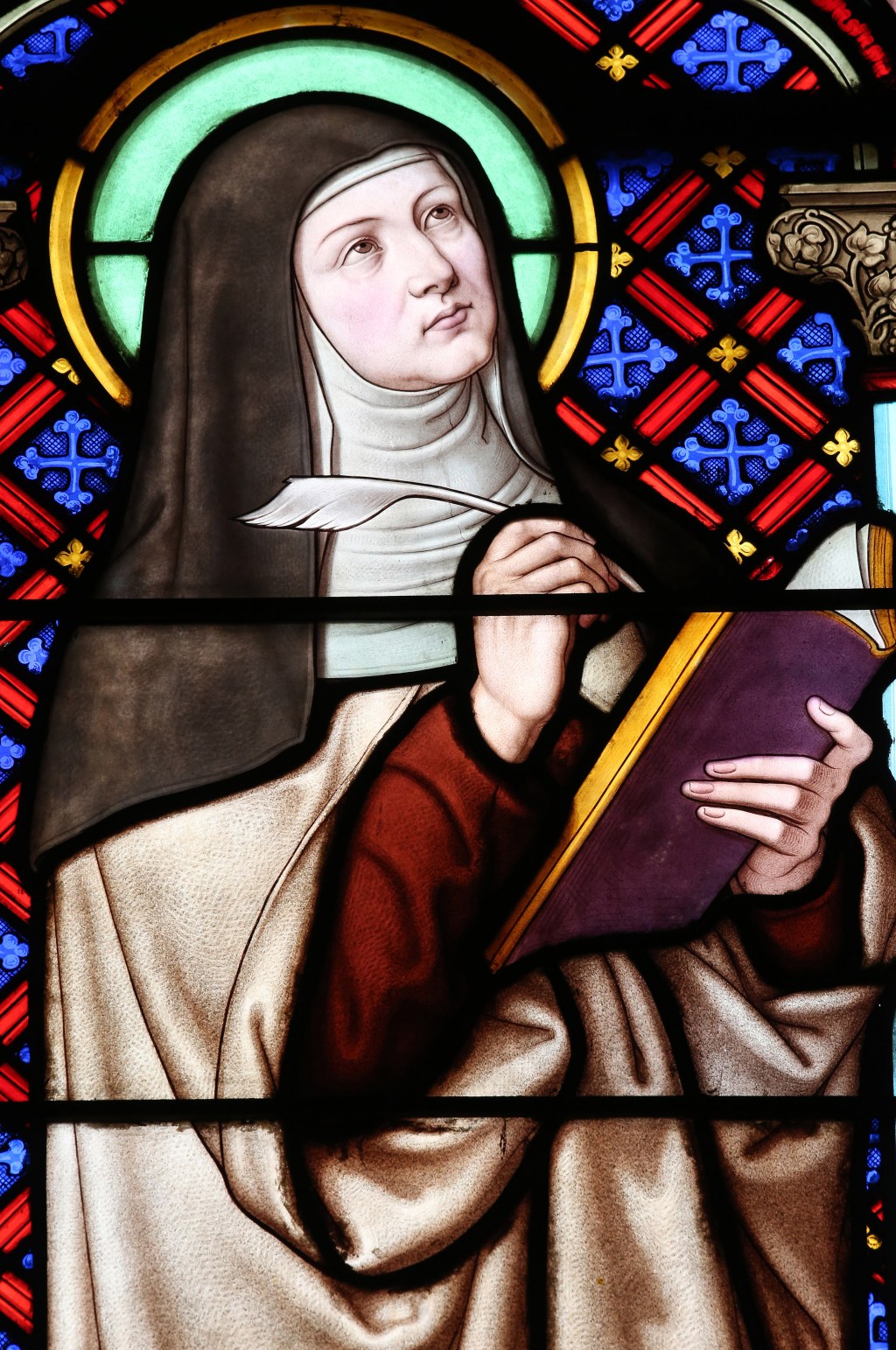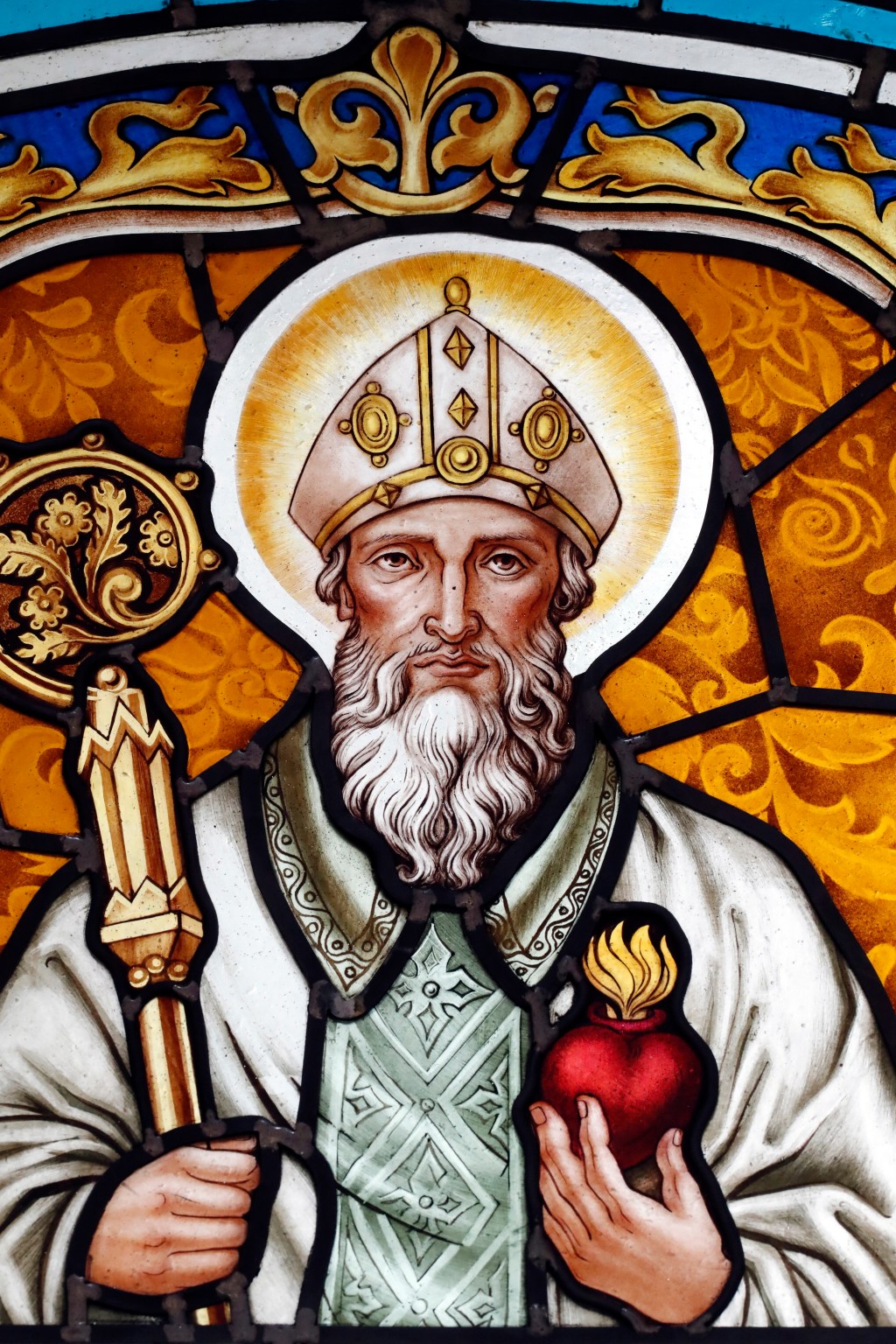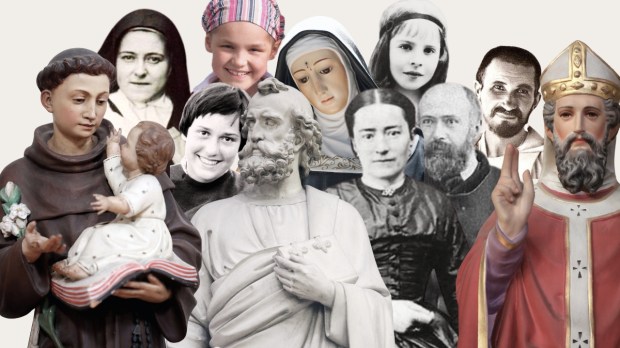Lenten Campaign 2025
This content is free of charge, as are all our articles.
Support us with a donation that is tax-deductible and enable us to continue to reach millions of readers.
The web is teeming with personality tests of all kinds, and more and more corporate seminars offer them to their employees. These often-exhaustive tests all have the same aim: to paint a typical portrait of a person to determine their main character traits and the way they behave in society. In the context of employee recruitment, for example, these tests can be used to better identify candidates.
Let’s set aside for the moment actual value of such tests, which we are not judging here. As members of the Church, we recognize there are physical and spiritual links that unite us to others. In this sense, the saints — or rather the relationships each person has with them — could be just as revealing of someone’s personality as the answers on a personality test. So asking, “Who is your favorite saint?” might be a great way to get to know our loved ones, colleges and friends better.
A saint for every cause and a cause for every saint.

Feeling closer to one saint than to others
Most people naturally feel inclined to pray to one particular saint rather than another. For example, John, a 35-year-old engineer and father, admires the faithfulness and discretion of his patron saint, St. John the Evangelist. John’s friends agree that both these qualities can also be found in him.
The same is true of Pete, who finds “the leadership and weakness” of his patron saint and namesake edifying. Christ entrusted the care of the Church to St. Peter even though he ended up denying the Lord three times. Like Pete, many are touched by the apostle’s zealous and impetuous character, which makes holiness accessible because of his human weakness. Pete, who is a young father, is also naturally drawn to the example of St. Joseph: “What a man, what a husband, what a father, and what humility!”
There are, of course, saints who are closely associated with specific professions or life situations. If, for instance, you are an elementary school teacher, one might logically assume that you have a special attachment to St. Elizabeth Ann Seton. Those who claim an Indigenous American ancestry will often find a great friend in St. Kateri Tekakwitha. And families who have members with developmental needs will often turn to St. Joseph of Cupertino for support.
There are also people who develop an attachment to a particular saint for very personal reasons, however. Someone who is called to spread God’s love in especially humble circumstances might find a model in St. Therese of Lisieux and try to imitate her “Little Way.” Those with more adventurous souls might feel drawn to a great missionary like St. Isaac Jogues who underwent severe torture that disfigured him, yet still returned to North America to continue to spread the Gospel.

Heroism, uprightness, gentleness, or impetuosity
Cecilia, a 25-year-old working woman, confides a great deal in St. Anthony of Padua, “for his tenderness and his attentiveness to life’s concerns, from the very small to the very great. I also love St. Padre Pio because he teaches us to love suffering and reminds us of the power of the Mass.”
Marielle, her office colleague, 31, admires Don Bosco “for his trust and care for the little ones,” and St. Rita “for her patience” and the graces she obtains especially for those who think they are hopeless.
For Alan, a father in his 40s, humor is an essential virtue. It’s only natural that he should share his affection for St. Philip Neri, also known as the apostle of joy.
It’s St. Joseph who warms the heart of Mathilde. As a wife and mother, she says, she’s deeply touched by “his humility and his total, unquestioning abandonment to God.” The young woman also admires the audacity of St. Thérèse of Lisieux, who, against everyone’s advice, did everything in her power to enter Carmel at the age of 15. A perfect example, she believes, of the famous adage that “he who asks for nothing, gets nothing.”
Heroism, righteousness, gentleness, humor, erudition, humility, simplicity or impetuosity … so many of us are inclined to feel closer to one saint than another.
Here’s a thought, though: Perhaps it is the saints who choose us as friends. In that case, such friendships contain a whole program of sanctification that indeed say something profound about each person’s personality: “Tell me your favorite saints and I’ll tell you who you are.”



